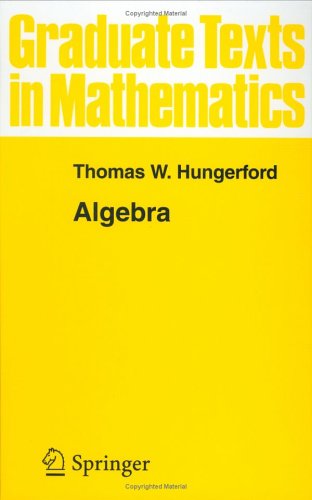Course Description
-
This is the second semester of a graduate course in abstract algebra, and
is intended to be an introduction to the fundamental objects of groups, rings, modules,
fields, and vector spaces.
I will cover parts (Sections 4 and 5) of Chapter III, and then Chapters IV–VI from Hungerford's
classical algebra text (at right).
We should cover the following topics.
I also expect to cover some topics in Chapters VII–X, time permitting.
- polynomial rings
- localization
- power series and power series rings
- introduction to modules
- exact sequences
- modules over a principal ideal domain
- free, projective, and injective modules
- hom and duality
- tensor, symetric, and exterior products
- field extensions
- algebraic, separable, and normal extensions
- simle extensions, splitting fields, and cyclotomic fields
- fundamental theorem of Galois theory
- finite fields
- solvability by radicals
- transcendence bases
Prerequisites: Graduate Algebra I or its equivalent.
|
|

|
 20 minutes after every class meeting
20 minutes after every class meeting
 By appointment
By appointment
 20 minutes after every class meeting
20 minutes after every class meeting
 By appointment
By appointment
